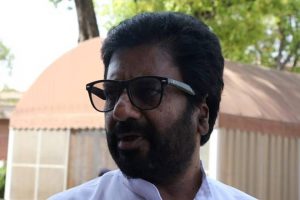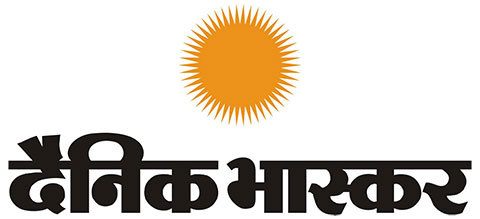
25-03-2017 (Important News Clippings)
To Download Click Here
The pursuit of khushiness
Madhya Pradesh set to be the first Indian state to have a Happex 😜

MP chief minister Shivraj Singh Chouhan made an announcement about the happiness index, appropriately enough, on World Happiness Day. The residents of MP will have their HQ – or happiness quotient – gauged by filling in a questionnaire, which will cover areas such as economic status and social welfare, and for which advice will be sought from ‘experts’.
The pursuit of happiness – or, to vernacularise the term, khushiness – has long been the subject of psychological and philosophical investigation, and MP’s babus could do worse than bone up on Jeremy Bentham’s ‘felicific calculus’, the objective of which was to devise a method to provide the greatest happiness to the greatest number.However, as MP goes about its laudable task of spreading joy and good cheer and allocates funds for the purpose, it should bear in mind the cautionary words of Mr Micawber who succinctly summed up the issue: “Annual income twenty pounds, annual expenditure nineteen [pounds] nineteen [shillings] and six [pence]; result happiness. Annual income twenty pounds, annual expenditure twenty pounds nought and six; result misery.”There is indeed a thin dividing line between elation and its opposite. When we wish for the moon, we’re only too liable to be fobbed off with sixpence, which under the current dispensation in the country could run the risk of overnight demonetisation.
Even as the long-promised acche din – which sceptics describe as being more about creating a din than creating anything acche – have yet to materialise. On the World Happiness Index, which lists 155 countries, India has fallen from a lowly 118 last year to an even lower 122 this year, way below neighbouring Pakistan’s 80.It could, of course, be argued that the quantum of solace we derive from happiness depends on the base effect; how good we feel depends on how bad we felt earlier.
Like everything else, happiness is relative, as suggested by the story of the hapless office employee who was daily subjected to wrathful invective by the boss. One day, his colleagues were surprised to see him smiling cheerfully. Asked how come, he replied he’d just received a promotion: “I’ve been promoted from an animal to a human – yesterday the boss called me a gadha (donkey) and today he called me a bewakoof (idiot).”
Khushiness can be a funny business, in more ways than one.
Representative, not lord and master; Parliament should act against violent MP

The airline and the assaulted staffer have filed separate complaints with the police. The police might or might not act, depending on how they interpret the signal from the powers that be. But Parliament should not abdicate its responsibility to uphold standards of decency and the essential spirit of democracy. Elected members fly around the country to serve the people, not to rule over them and behave like feudal lords. This must be made very clear to Gaikwad and all would-be Gaikwads among MPs. For Gaikwad, this is a repeat offence of sorts. He had made news once earlier for stuffing a roti into a canteen boy’s mouth for daring to serve him non-Maharashtrian food. MPs looked the other way on that occasion. It is time to act now. And they should not be surprised if he does not quite turn the other cheek.People must protest in his constituency as well. MPs have to be disabused of the notion that they can be, once elected, a law unto themselves, and are not answerable to anyone. People have to assert their status as the sovereign in a democracy. Those whom they elect to office have the delegated authority to run the affairs of the nation on behalf of the people. They are not modern versions of the rulers of old, with untrammelled power.
Date:25-03-17
Focus on power sector for good governance in Uttar Pradesh

It is welcome that some fiscal benefits of UDAY, Ujwal Discom Assurance Yojana, are beginning to accrue. Reportedly, 15 states that have initiated financial restructuring of power utilities, by issuing bonds against discoms’ debt, are likely to see cumulative interest saving of Rs 7,250 crore this fiscal. But what’s required is institutional reform and transparency. Average revenue realisation remains below the average cost of power supply nationally. Given our widespread energy poverty levels, power subsidies might not be ruled out, but these need to be transparently budgeted and provided for, for instance, via Aadhaar-linked bank accounts. The way ahead is to mandate quarterly publication of state power utility results, and a time-bound programme for stock market listing of state power utilities.The point is to make a clear break from the perverse practice of politically mandated tariffs, tolerance of theft, open-ended subsidies and consequent woeful quality of power. Instead, good governance calls for 100% metering of power supplied 24×7, complete with reasonable utility bottomlines to provide for investment and plough-back. We need proper market design so that efficient power producers can supply, distribute and seek custom at competitive rates. Given sustained power demand in the offing, power utilities can actually provide steady returns for the long term.
Date:25-03-17
अयोध्या का हल सिर्फ बातचीत से ही होगा
Date:25-03-17
भारत को टीबी मुक्त देश बनाए जाने की जरूरत
आरक्षण पर नई पहल
राष्ट्रीय पिछड़ा वर्ग आयोग को संवैधानिक दर्जा देने की तैयारी यह बताती है कि सरकार इस आयोग को वैसा ही स्वरूप देना चाहती है जैसा अनुसूचित जाति एवं जनजाति आयोग को प्राप्त है। पिछड़ा वर्ग आयोग को संवैधानिक दर्जा देने की मांग एक पुरानी मांग थी। इस मांग के पीछे एक बड़ा आधार यह था कि अनुसूचित जाति एवं जनजाति आयोग की तरह से पिछड़ा वर्ग आयोग को समस्याएं सुनने और उनका निपटारा करने का अधिकार नहीं था और शायद इसीलिए तमाम आरक्षित पदों पर नियुक्तियां न किए जाने संबंधी शिकायतें दूर होने का नाम नहीं ले रही थीं। अब जब एक पुरानी मांग को पूरा करने की दिशा में कदम बढ़ा दिए गए हैं तब फिर आरक्षण व्यवस्था की खामियों को दुरुस्त कर उसे और प्रभावी बनाने पर भी ध्यान देना चाहिए। ऐसा करते हुए ऐसी कोई व्यवस्था बनाना आवश्यक है जिससे पात्र लोगों को ही आरक्षण का लाभ मिले। मंडल आयोग की सिफारिशों के अनुरूप अन्य पिछड़ी जातियों को आरक्षण सामाजिक न्याय के लक्ष्य को पूरा करने के लिए प्रदान किया गया था, लेकिन पिछले कुछ समय से इस व्यवस्था को इस रूप में देखा जाने लगा है जैसे वह सरकारी नौकरियां हासिल करने का आसान जरिया हो। यही कारण है कि वे अनेक जातियां भी आरक्षण पाने के लिए लामबंद हैं जिन्हें सामाजिक रूप से पिछड़ा नहीं कहा जा सकता। चूंकि सरकार पिछड़ा वर्ग आयोग को सामाजिक एवं शैक्षणिक पिछड़ा वर्ग आयोग का नाम देकर उसे संवैधानिक स्वरूप देने जा रही है इसलिए यह भी संभव है कि पिछड़ेपन को परिभाषित करने के नए तौर-तरीके अपनाए जाएं। ऐसा करने में हर्ज नहीं, लेकिन पिछड़ेपन की ऐसी कोई परिभाषा नहीं की जानी चाहिए जिससे उसकी मनमानी व्याख्या न हो सके।
इस पर आश्चर्य नहीं कि पिछड़ा वर्ग आयोग के स्थान पर सामाजिक एवं शैक्षणिक पिछड़ा वर्ग आयोग बनाने और उसे संवैधानिक दर्जा देने के फैसले के पीछे एक मकसद जाट, मराठा, पाटीदार आदि को आरक्षण प्रदान करना हो। यदि ऐसा किया जाता है तो हो सकता है कि अदालतें इन जातियों को दिए जाने वाले आरक्षण को खारिज न कर सकें, लेकिन इसके प्रबल आसार हैं कि कुछ और जातियों की ओर से भी आरक्षण की मांग की जाए। बेहतर होगा कि सामाजिक एवं शैक्षणिक पिछड़ा वर्ग आयोग को संवैधानिक मंजूरी देने के क्रम में आरक्षण व्यवस्था की नीर-क्षीर ढंग से समीक्षा की जाए। ऐसा करते समय इस पर भी विचार होना चाहिए कि क्या सामाजिक एवं शैक्षणिक के साथ-साथ आर्थिक रूप से पिछड़े वर्गों को भी आरक्षण का लाभ दिया जा सकता है। आखिर सामाजिक पिछड़ेपन यानी जाति आधारित आरक्षण के साथ-साथ आर्थिक पिछड़ेपन के आधार पर आरक्षण की व्यवस्था क्यों नहीं की जा सकती? जैसे किसी आयोग को संवैधानिक दर्जा देने के लिए संविधान में संशोधन हो सकता है वैसे ही आरक्षण व्यवस्था को दुरुस्त करने के लिए भी हो सकता है। यह वक्त की मांग है कि हमारे नीति-नियंता इस पर भी विचार करें कि आजादी के 70 वर्ष बाद भी शैक्षणिक रूप से पिछड़े वर्ग क्यों हैं? अच्छा होगा कि आरक्षण के साथ शिक्षा व्यवस्था को भी दुरुस्त करने पर विचार हो।
आरक्षण की गेंद
सरकार ने आरक्षण की बाबत एक अहम फैसला किया है। इस फैसले के तहत नेशनल कमीशन फॉर सोशियली ऐंड एजुकेशनली बैकवर्ड क्लासेस यानी राष्ट्रीय सामाजिक एवं शैक्षिक पिछड़ा वर्ग आयोग (एनएसईबीसी) का गठन होगा, जो मौजूदा राष्ट्रीय पिछड़ा वर्ग आयोग की जगह लेगा। पहले भी, आरक्षण का आधार सामाजिक व शैक्षिक पिछड़ापन ही था, और जैसा कि खुद नाम से जाहिर है, नए आयोग के गठन के बाद भी वही होगा। इसमें कुछ गलत नहीं है, संविधान में भी और सर्वोच्च न्यायालय के फैसलों में भी आरक्षण की बाबत यही नीति और नजरिया मान्य है। केंद्र सरकार के ताजा निर्णय में अगर कुछ नया है, तो एक यह कि इसके जरिए उसने आरक्षण की गेंद संसद के पाले में डाल दी है। दूसरे, प्रस्तावित एनएसईबीसी को संवैधानिक दर्जा दिया जाएगा, जैसा कि अनुसूचित जाति आयोग और अनुसूचित जनजाति आयोग को हासिल है।
पर यह दर्जा राष्ट्रीय पिछड़ा वर्ग आयोग को प्राप्त नहीं था। सवाल है कि सरकार के इस फैसले से आरक्षण को लेकर क्या फर्क पड़ेगा? सबसे खास बात यह होगी कि राष्ट्रीय स्तर पर किस जाति को पिछड़े वर्ग में रखा जाए और किसे बाहर किया जाए, इसका फैसला केंद्र सरकार के बजाय संसद करेगी। एनएसईबीसी का एक अध्यक्ष होगा और एक उपाध्यक्ष, और तीन अन्य सदस्य होंगे। नागरिकों के किसी समूह को पिछड़े वर्ग में शामिल करना है या उससे बाहर करना है इस बारे में प्रस्तावित आयोग केंद्र सरकार को अपनी सिफारिश भेजेगा। आयोग की सलाह अमूमन केंद्र सरकार के लिए बाध्यकारी होगी। मगर इस बाध्यकारिता का कोई ज्यादा मतलब नहीं होगा, क्योंकि फैसला अंतत: संसद करेगी। अलबत्ता यह जरूर कहा जा सकता है कि निर्णय संसद में होने का व्यावहारिक अर्थ यह होगा कि सत्तारूढ़ पार्टी या गठबंधन की भूमिका उसमें अहम होगी।
लेकिन जब ओबीसी आरक्षण के लिए जाट आंदोलन जैसी उलझन में डाल देने वाली स्थिति होगी, तो सरकार पल्ला झाड़ते हुए कह सकेगी कि हमारे हाथ बंधे हुए हैं, फैसला हमें नहीं संसद को करना है। पटेल औरकापु जैसी कई और ताकतवर जातियां भी आरक्षण मांग रही हैं। उनकी सियासी ताकत को देखते हुए, क्या यह उम्मीद की जा सकती है कि संसद उनकी मांग पर सिर्फ सामाजिक और शैक्षिक पिछड़ेपन के कोण से विचार करेगी? दूसरे, क्या इस बात की भी आशंका नहीं है कि कोई ऐसा समुदाय, जो संख्याबल में कमजोर हो और राजनीतिक नफे-नुकसान के लिहाज से ज्यादा मायने न रखता हो, उसके आवेदन या उसकी शिकायत को नजरअंदाज कर दिया जाए? आरक्षण को लेकर उभरने वाले विवादों के पीछे दो सबसे बड़ी वजहें हैं।
एक यह कि मांग की तुलना में रोजगार के नए अवसर बहुत कम पैदा हो रहे हैं। दूसरे, संगठित क्षेत्र की नौकरियों के बरक्स असंगठित क्षेत्र के रोजगार में पैसा भी बहुत कम मिलता है और असुरक्षा भी ज्यादा होती है। खेती के लगातार घाटे का धंधा बने रहने तथा अन्य स्व-रोजगार में अस्थिरता व दूसरी मुश्किलों के चलते सरकारी नौकरी सबका सपना हो गई है। यही कारण है कि जाट, पटेल और कापु जैसे समुदाय, जो कभी अपनी आत्मछवि पिछड़े के तौर पर नहीं देखते थे, अब आरक्षण के लिए आसमान सिर पर उठा लेते हैं। कोई भी पार्टी वोट के नुकसान के डर से आरक्षण की अनुचित मांग के खिलाफ मुंह नहीं खोलती। ऐसे में, संसद में सियासी समीकरणों से ऊपर उठ कर विचार होगा, इसकी ज्यादा उम्मीद नहीं की जा सकती।
Sherry-picking
Far from making a laughing stock out of governance, Navjot Singh Sidhu has opened up new imaginings
For someone who sputtered onto the national stage as a “strokeless wonder” debuting for India against a West Indies in its prime in 1983, Navjot Singh Sidhu has certainly metamorphosed into a stroke-maker par excellence in the worlds he has inhabited over a storied career — cricket, where he emerged as India’s finest Test opener in the intervening period between Sunil Gavaskar and Virender Sehwag; as a cricket commentator and entertainment personality whose wisecracks and turns of phrase even prompted the coining of the term ‘Sidhuisms’; and politics, transitioning from a trophy acquisition for the Bharatiya Janata Party in 2004 to incumbent Minister in Punjab.
Yet Mr. Sidhu has always worn his weighty political resume lightly. The three-time parliamentarian thought nothing of confining himself to the Bigg Boss house in 2012, or playing second fiddle in comedian Kapil Sharma’s eponymous television shows. It shouldn’t surprise, then, that days into assuming office as Minister of Local Government, Tourism, Cultural Affairs, Archives and Museums, Mr. Sidhu has insisted that he’d continue appearing alongside Sharma.
The quirks of power
Mr. Sidhu has also pitched the gig as an economic imperative, claiming his only earnings now were from this show. Given how ‘full-timers’ have made politics an avenue for personal aggrandisement and turned public office into a byword for rent-seeking, lassoing him with the ‘office of profit’ clause is just the kind of rule-book hypocrisy we could do without. Our politics needs space for entirely new imaginings, for mavericks who see it not from the lofty heights of public service but as a job to be done and be held to account at the hustings.
Critics, however, argue that Mr. Sidhu’s insistence is mere posturing for weightier portfolios. Having overplayed his hand with the Aam Aadmi Party after exiting the BJP last year, he has had to settle for much less. In trademark Congress style, even the question of who is the number two in the Cabinet has been suitably obfuscated with Mr. Sidhu being sworn in after Chief Minister Amarinder Singh and Health Minister Brahm Mohindra. If this is indeed a bargaining chip from Sherry, here’s a Sidhuism for solace: “Boss, make hay while things are going haywire.”





